Most people do not have an idea what PCI compliant hosting is when it is probably one of the most important things they need to learn about the internet. Those who want to conduct ecommerce as a line of business need to understand what PCI compliance means. PCI compliance is important for businesses that want to tap into the credit card industry.
What PCI is all about
PCI DSS is an acronym which stands for Payment Card Industry Data Security Standard. The name alone should give people an idea what PCI is all about and why it is so important.
Basically, PCI is actually a list of certain requirements that credit card companies need from ecommerce PCI compliant hosts. These requirements are basically necessities for security. Being PCI compliant means that the host is capable of maintaining a secure and safe environment for credit card users. This means that people can use their credit cards and the website will be capable of storing, processing and transmitting credit card information safely.
Why is PCI even needed?
PCI isn’t really a necessity at least for websites who do not make use of credit cards as a payment system. However, since a vast majority of the internet’s users use credit cards, most websites find it extremely useful in conducting their business.
The problem with the internet is that there are a lot of hackers out there who want to get rich by stealing other people’s information. This phenomenon is referred to as phishing and is actually a common crime in cyberspace.
The big credit card names, such as MasterCard and Visa to name a few, are afraid of the potential disaster that can result from credit card fraud and identity theft. The PCI DSS was created in order to address the security issues involved with using credit cards online.
Is it safe to deal with websites that are not PCI compliant?
There are websites which do not make use of ecommerce PCI compliant hosts. Not all websites that are not PCI compliant are harmful. Many of them still offer their customers of a secure mode of payment.
These websites often make use of other methods of receiving payment from their online customers. These alternative payment processors are usually run by third parties who sort of act as a middle man or go between for those who cannot acquire the services of PCI compliant hosts.
SHOPIFY
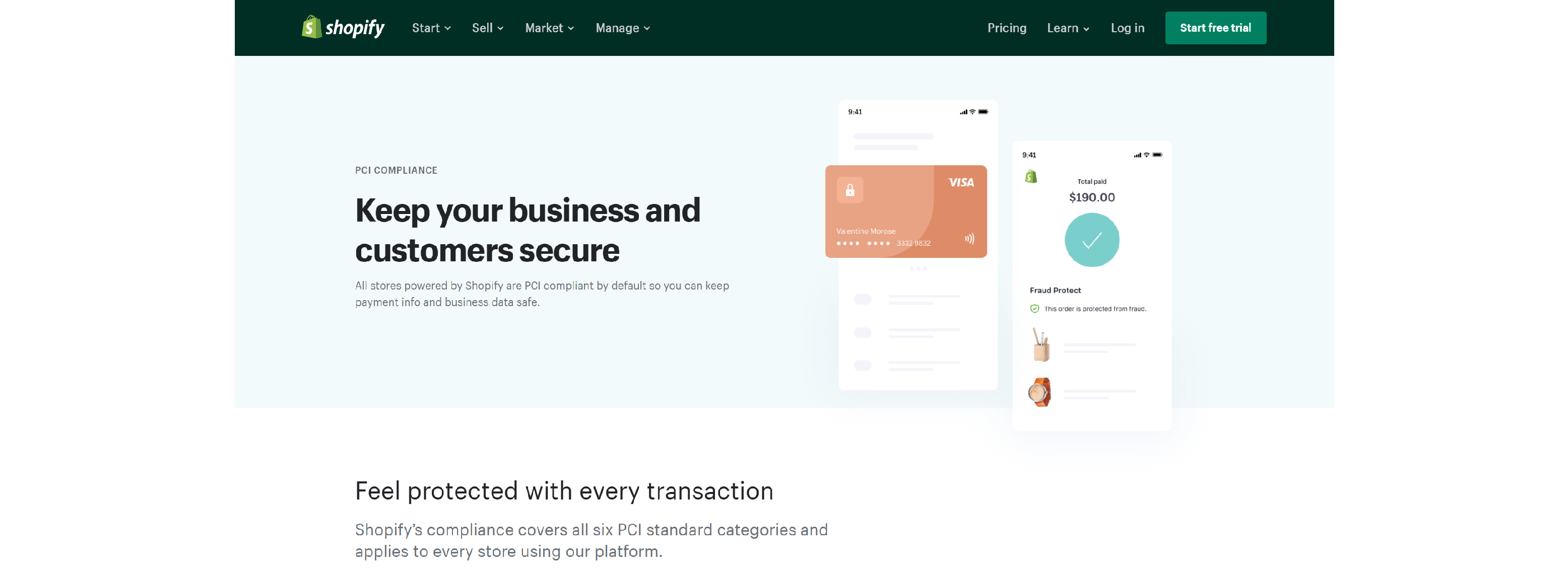
Shopify powers online stores and includes PCI DSS compliant shopping cart software and ecommerce hosting.
- Maintain a secure network
- Protect cardholder data
- Maintain a vulnerability management program
- Implement strong access control measures
- Regularly monitor and test networks
- Maintain an information security policy
RACKSPACE
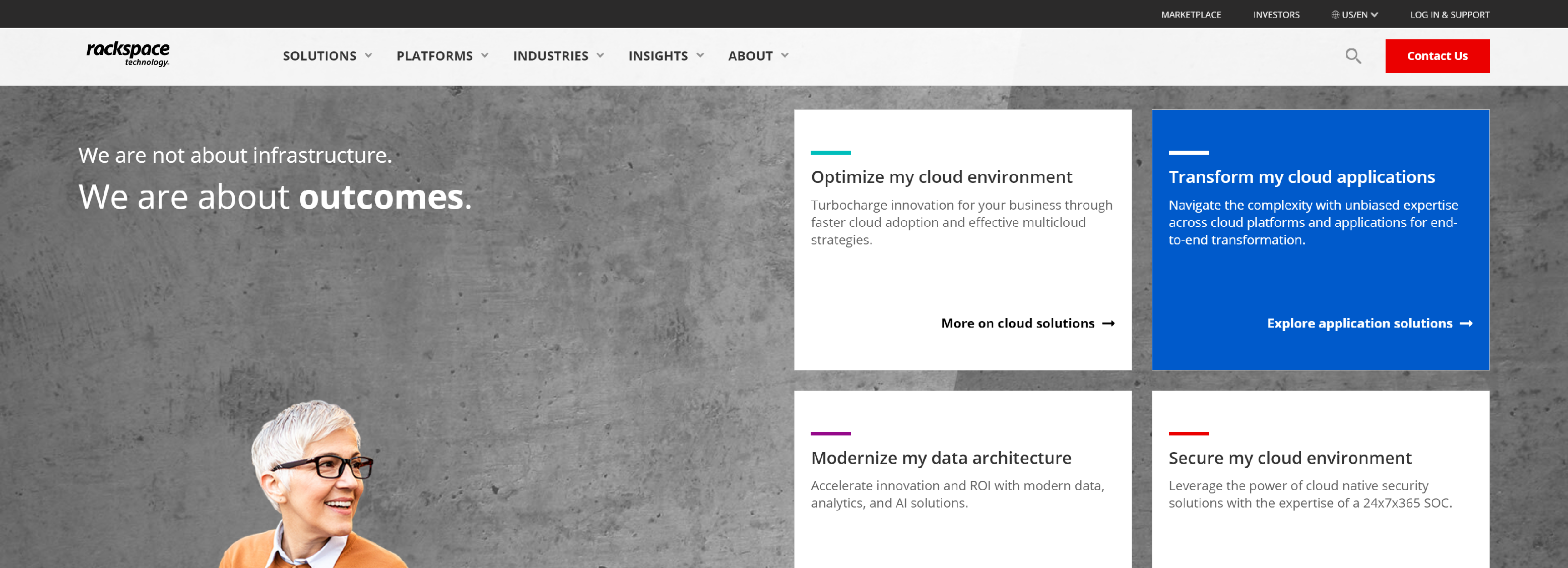
Rackspace is here to help you navigate this challenging process, taking you from compliance planning through implementation.
- Reduce Costs
- Deliver ROI Faster
- Avoid Fines
- Stay Up to Date
- Pass Audits Quickly
SYSGROUP
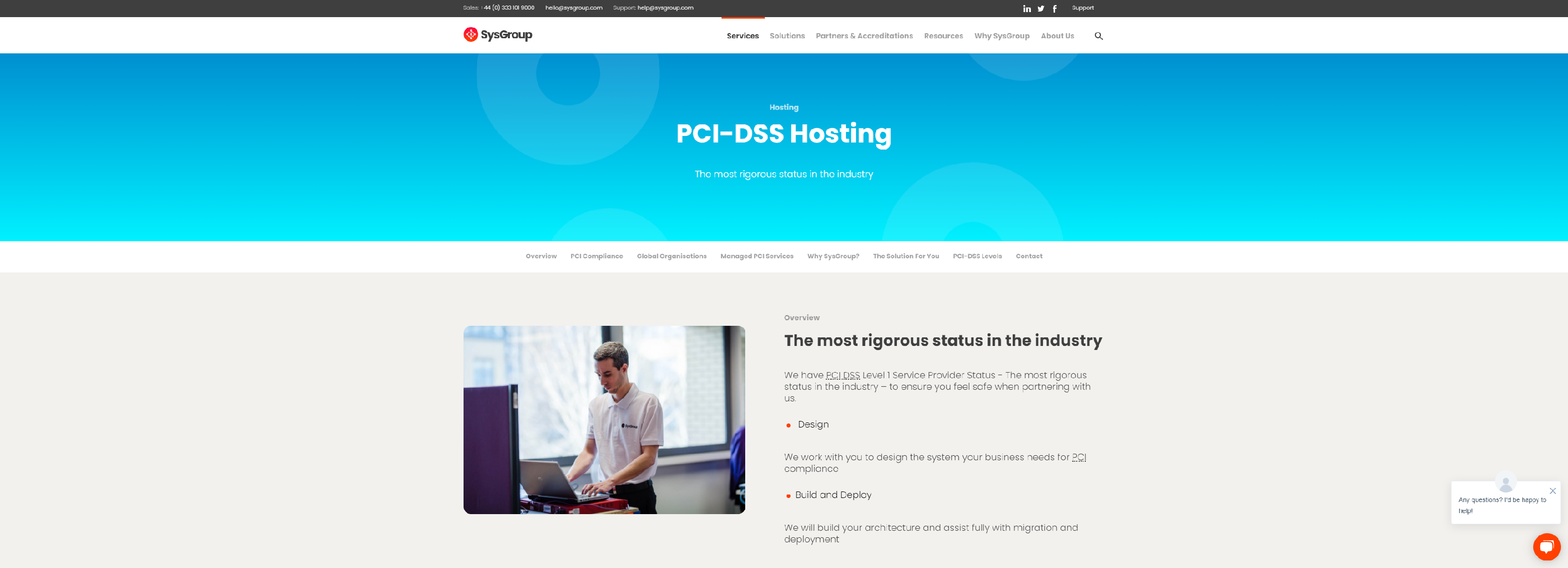
Leading UK managed IT services & cloud hosting provider. Core services include managed IT, cloud hosting, IT security, connectivity & IT consultancy.
- Reviewing current systems and procedures
- Understanding what level is required
- Developing a cost effective compliant hosting solution
- Managing compliance through migration
- We partner with industry leading QSA’s
- Assisting through the assessment process
- Continued monitoring for annual reviews
- Adjusting hosting needs as business needs change
NAVISITE

Cloud service provider Navisite can accelerate your IT transformation and lower costs with Azure, AWS, SAP HANA, migrations & more.
- Industry-Leading Expertise
- Proven Set of Best Practices
- Daily Management and Maintenance
- Ongoing Strategy and Guidance
DOTEASY
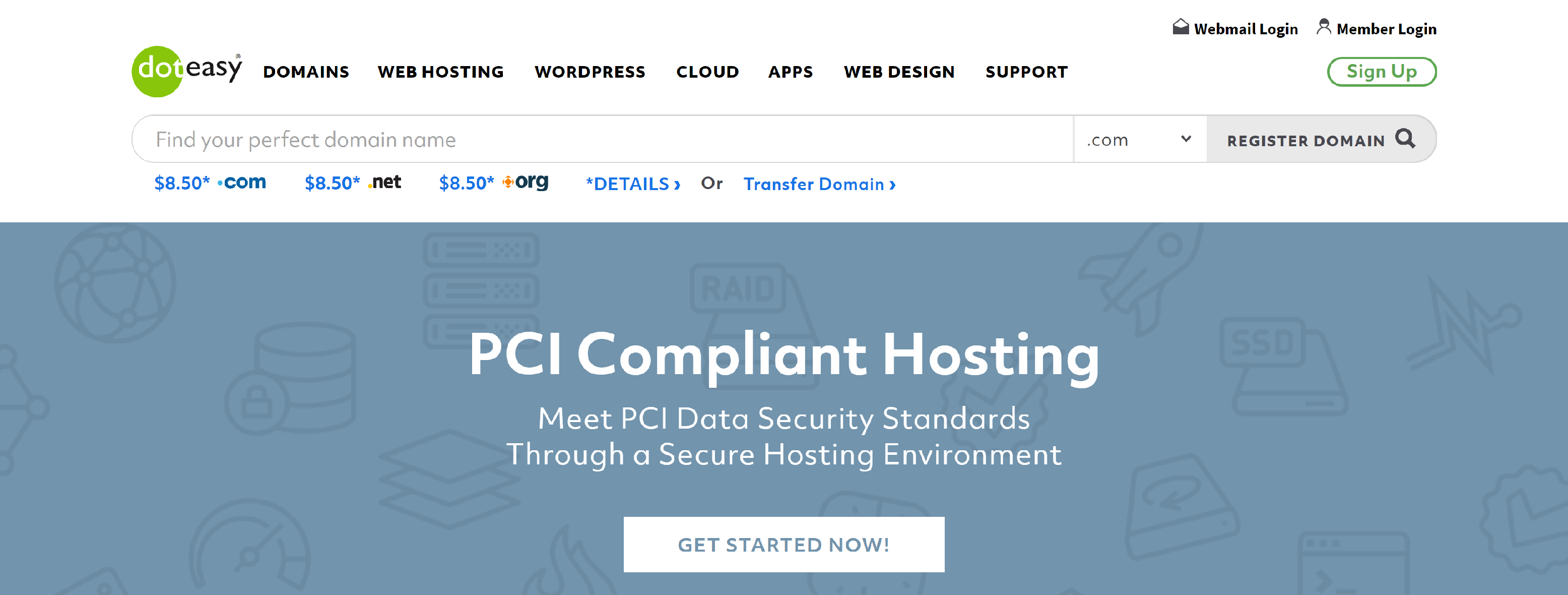
Doteasy offers PCI Compliant hosting solutions that allow you to pass PCI Compliant scanning and securely sell online.
- Meet PCI Security Standards
- Pass PCI Scanning Tests
- Protect Your Customer Credit Card Payment Data
- 30-day Money Back Guarantee
NEXCESS
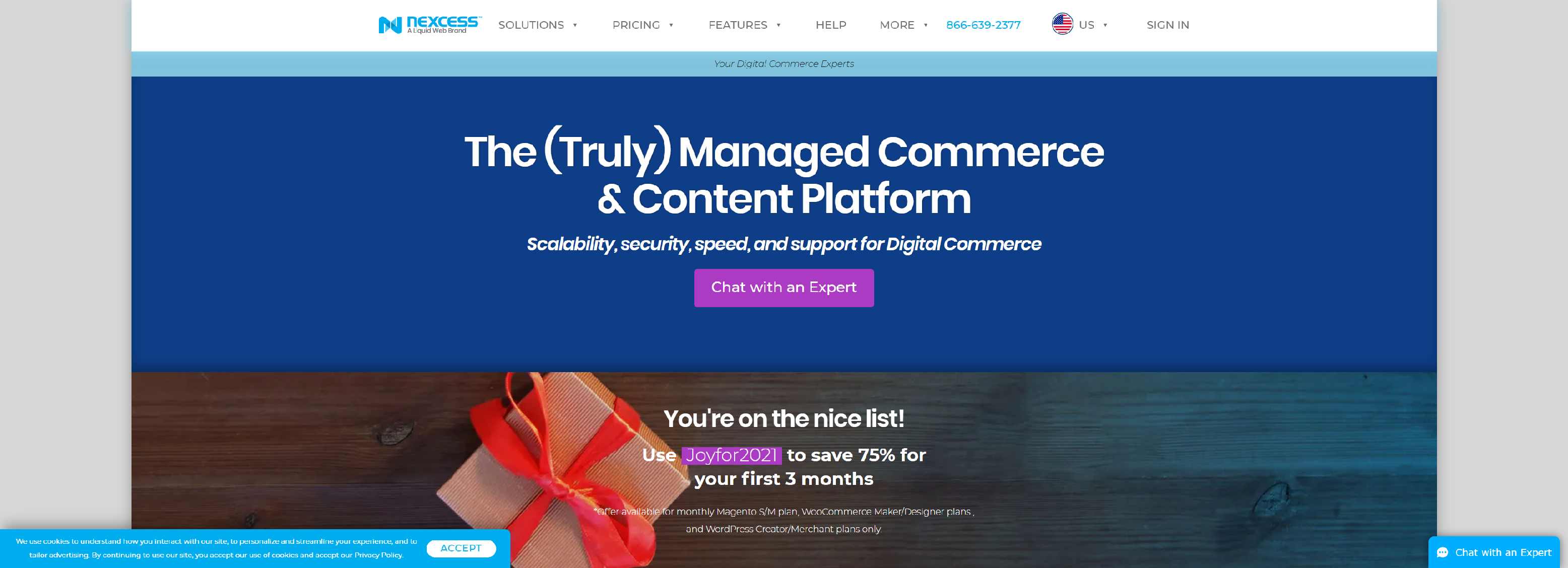
Nexcess is a PCI DSS Level 1 provider across all hosting solutions. We provide a fully PCI compliant data center and can help merchants become compliant as well.
- Get Started Quickly
- Expert Guidance
- Security Hardening
- Continuous Monitoring
EUROVPS
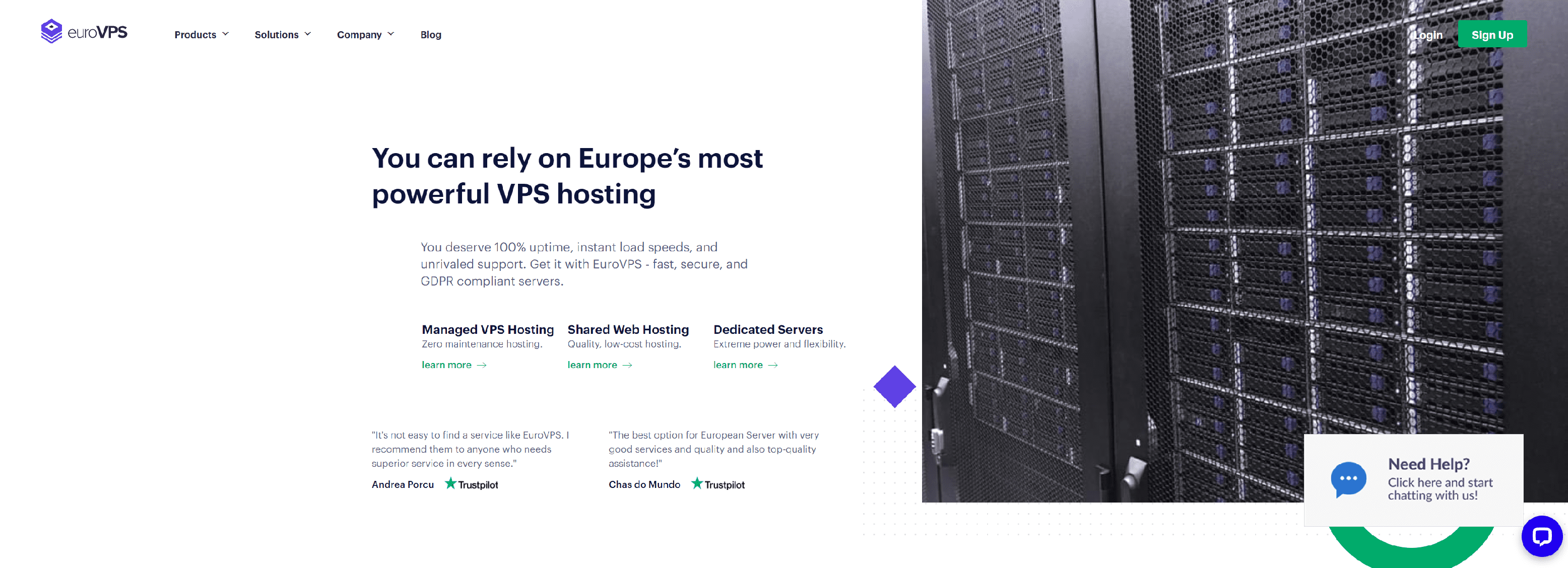
PCI compliance requirements can be complex and hard to manage, especially as standards evolve. EuroVPS can make PCI Compliance a reality for you.
- Web Application Firewall (WAF)
- Intrusion Prevention System (IPS)
- Intrusion Detection System (IDS)
- Encryption
- Dual Factor Authentication
An Introduction to PCI Compliance
PCI compliance security measures should be one of the one of the first things that anybody wanting an ecommerce website needs to think about. Most, if not all, of the websites that dominate the ecommerce industry rely on credit cards as one of their payment methods. Only websites that are PCI compliant can hope to use credit cards for their business transactions.
The discussions below will cover topics that are essential in learning everything there is to know about PCI compliance.
What is PCI and why do websites need to comply?
The major credit card companies (JCB, American Express, Discover, MasterCard and Visa) are afraid of information theft. The people who will be responsible for covering the losses of fraudulent transactions are the credit card companies. To prevent that, the major companies made the Payment Card Industry Security Standards Council (PCI SSC) which is the body responsible for creating and developing the Payment Card Industry Data Security Standard (PCI DSS).
Basically, the purpose of the PCI DSS is to create a secure environment where credit card holders can do their transactions on a secure network.
Is There PCI Compliance Checklist?
There is indeed a list of requirements. Not everybody can hope to get a certification for being PCI compliant. There are certain things that a website and a webhost need fulfill in order to acquire certification.
There are a total of twelve different requirements stated in the website of the PCI SSC. The point of all of these requirements falls under six different objectives which are:
- Protecting the cardholder’s information
- Implementing strong measures for access
- Regularly testing and monitoring the networks
- Maintaining and developing vulnerability management program
- Creating and maintaining a secure network
- Implementing a security policy
There are a total of twelve different requirements that a person or organization needs to fulfill in order to acquire certification. The full list of requirements can be found on the PCI SSC’s own website on the internet. However, there are tasks that go beyond than just completing the PCI compliance checklist of requirements.
How to Become PCI Compliant
The first step that a person or organization needs to take is to completely fill out the Self-Assessment Questionnaire (SAQ). For certain companies or businesses, this might very well be the only thing they need to do. Basically, the SAQ ascertains whether an enterprise or business organization is already in compliance with the guidelines of the PCI DSS.
Organizations that have their own IT department can simply leave this task up to them as they are the ones who are most qualified to answer the questions contained in the SAQ. Those who do not have their own IT department might make use of the services of a third party.
QSAs, which stands for Qualified Service Assessors, can help businesses that do not have their own IT department or personnel. These third party services are responsible for delivering the website’s Report on Compliance (RoC). Those who are interested PCI compliance security and are in need of their services QSAs can acquire a list from the PCI SSC.
Common PCI Questions Answered
No ecommerce website will be caught dead being hosted by a host that does not pass PCI compliance requirements. PCI is practically essential for any organization or enterprise that conducts its business on the World Wide Web. People who are in the stages of planning their business on the internet need to be aware of some of the more important things about PCI compliance.
Below are answers and explanations to common questions that the people who are unfamiliar with PCI compliance and standards ask to IT professionals and web hosting services.
What is PCI?
PCI is actually shorthand for an even longer acronym, which is PCI DSS. PCI DSS stands for Payment Card Industry Data Security Standard. The name alone should give people most citizens of the internet an idea of what the PCI is all about.
Credit cards companies are liable for any damage that their users might incur in the case of fraud or identity theft. They have to pay for the money that their credit card users have lost, then they have to pay the processing fees, and that’s not even taking into account the damage it will do to the credit card companies.
The PCI is a set of standards about the handling of sensitive data. It must be noted that PCI compliance requirements extend to debit and prepaid cards as well. This ensures that the data being sent and received are transferred through a secure environment.
What are the PCI compliance standards anyway?
There are a total of twelve requirements that every website needs to adhere to in order to process any type of card that falls under the umbrella of the major companies, Visa and American Express just to name a few.
The requirements might first appear daunting but are quite easy enough to understand. A comprehensive list of these requirements can be found on the PCI SSC’s (Payment Card Industry Security Standards Council) website. Some of these requirements are, employing the use of a secure and stable firewall, using user passwords that are not set by default i.e. given by the website, and many more.
How to tell if a website is PCI compliant or not?
The simplest and most effective way of telling whether a website on the internet is PCI compliant can simply be done by knowing their payment methods. If the website accepts credit card payments then the website is PCI compliant. The size of the transactions does not matter; any website that accepts credit card payments for big or small transactions will be PCI compliant.
Websites that do not use or accept credit card payments are websites that are not PCI compliant.
Are websites that are not PCI compliant trustworthy?
Yes and no. Websites that do not make use of credit cards often make use of third parties in order to process payments and transactions. An example of this third party service would be PayPal.
Websites that do not adhere to PCI compliance standards will often use third party payment processors to get the job done.